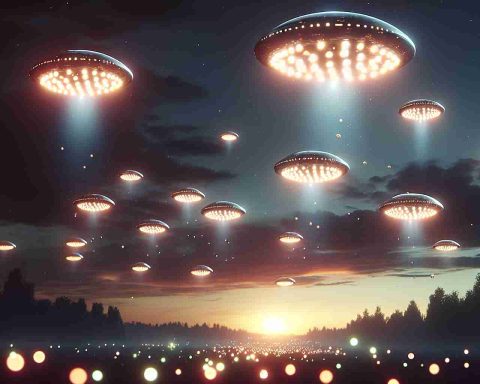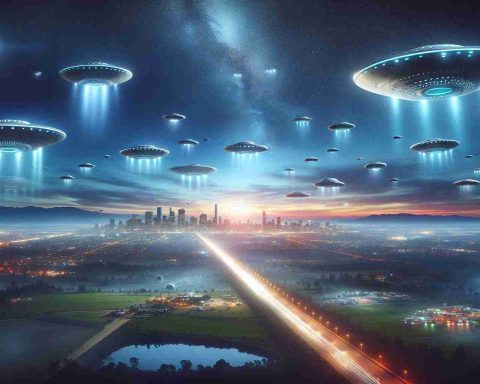Diminished Spirit of Resistance
As Donald Trump gears up for his second inauguration on Martin Luther King Day, the atmosphere surrounding this event starkly contrasts with the chaos of his first. Back in 2017, his inauguration was ignited by massive riots and an unprecedented wave of protests, famously noted as one of the largest in U.S. history. However, this year, the anticipated demonstrations are projected to attract significantly fewer participants.
With the fervor of the anti-Trump resistance seemingly dwindling, only thousands are expected to gather for marches honoring Martin Luther King and voicing discontent against Trump. This decline reflects the changed political landscape after his recent electoral victory, with Trump now enjoying an all-time high in favorability among the public. Notably, many Democratic lawmakers are choosing to attend this time rather than boycott, citing reasons outside political dissent.
Turning attention to the protests, less than 50,000 had RSVP’d for the weekend’s main demonstration, creating a stark comparison to the estimated 500,000 attendees from eight years ago. Some familiar progressive figures seem to be stepping back, suggesting a shift in strategy from confrontation to participation.
The upcoming inauguration will unfold alongside a surge of conservative events, illustrating the divergent political currents shaping this historic moment. In a world where once-vocal celebrities now hold back, the era of high-profile resistance appears to be fading into history.
Shifts in Political Engagement: A Cultural Reflection
The evolving landscape of political engagement during Donald Trump’s second inauguration underscores a significant transformation in societal dynamics and cultural discourse. With public interest seemingly waning and protests drawing fewer participants, this transition highlights a possible shift in resistance strategies that could redefine how citizens interact with political leadership in America.
Historically, mass protests functioned as potent expressions of collective discontent, galvanizing communities and influencing political narratives. The decline in participation during this inauguration suggests a broadening ideological fatigue among some segments of the electorate. As political polarization intensifies, the notion of active resistance is giving way to a more tempered approach, encompassing cooperation rather than confrontation. This change may impact the future mobilization of progressive movements, compelling activists to reconsider their methods and messages in a climate where traditional demonstrations no longer yield the same traction.
Moreover, the current political climate reflects a significant intertwining of societal behavior with the global economy. As economic stability becomes increasingly prioritized, citizens may view political dissent through a pragmatic lens, balancing their concerns for social justice against economic realities.
Looking forward, the implications of this diminished spirit of resistance could shape environmental advocacy as well. Striking a balance between activism and pragmatic policymaking may lead to innovative collaborations focused on sustainable solutions. The future may hold a landscape where traditional confrontations evolve into a new form of political dialogue, one that resonates with the broad spectrum of society in an ever-changing global context.
Trump’s Second Inauguration: A Shift in Public Sentiment Amidst Reduced Protests
A Different Atmosphere Surrounds Trump’s Second Inauguration
As Donald Trump prepares for his second inauguration on Martin Luther King Day, the environment marks a notable departure from the tumultuous events of his first inauguration in 2017. The initial ceremony was engulfed in mass riots and widespread protests, recorded as one of the most significant anti-inauguration movements in U.S. history. In contrast, predictions for this year foretell a markedly subdued turnout at the demonstrations, signaling a transformation in political engagement among citizens.
Protests and Anticipated Attendance
Despite the historical significance of the day, only thousands are expected to participate in marches commemorating Martin Luther King Jr. and expressing discontent with Trump’s leadership. This significant decrease from the estimated 500,000 demonstrators who participated in 2017 reflects the evolving political landscape after Trump’s recent electoral victory. His approval ratings have surged, suggesting that public sentiment has shifted in his favor, reducing the momentum of opposition movements.
Trends in Political Engagement
Interestingly, many Democratic lawmakers, who previously boycotted Trump’s events as a form of protest, have indicated a willingness to attend this inauguration. This shift points towards a strategy that moves away from outright opposition to one that embraces participation and collaboration, potentially opening avenues for bipartisan discussions.
A Decrease in High-Profile Resistance
The absence of prominent figures in the resistance movement, including celebrities who once openly criticized Trump, hints at a transformation in the dynamics of political activism. The fervor that marked the early anti-Trump protests has seemingly diminished, leading some to speculate whether the strategy should shift from confrontation to a more unified presence in governance and dialogue.
Implications for Future Political Movements
The upcoming inauguration is occurring alongside a series of conservative events, further highlighting the contrasting political currents at play. Experts suggest that this may symbolize a broader trend in political engagement, where future movements could favor collaborative efforts over divisiveness. This change could redefine the landscape of grassroots activism in America and may lead to new coalitions forming across party lines.
Conclusion: An Era of Reflection
The contrast between the past and present cleanly illustrates an evolving political climate. As Trump navigates his second term, the anti-Trump sentiments that once dominated the narrative appear to be evolving into new forms of political engagement. Observers remain keenly attuned to how this landscape will unfold, especially in light of a reinvigorated political dialogue during and after the inauguration.
For more information on current political events and analyses, visit Politico for in-depth features, breakdowns of political trends, and expert reviews on shifting public sentiments.


















